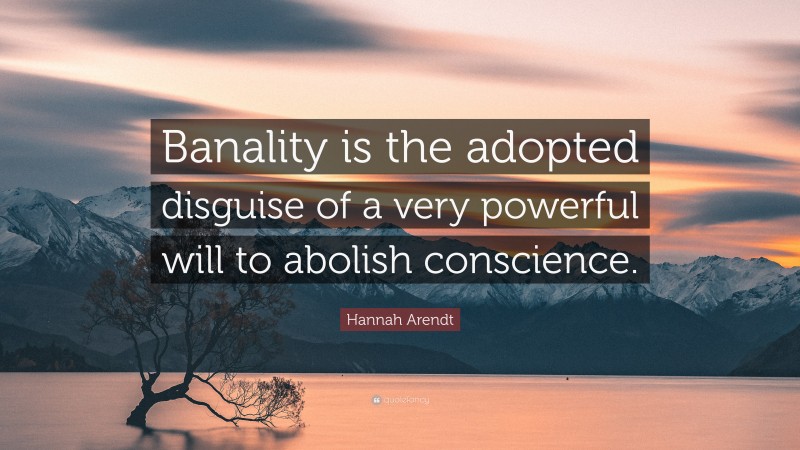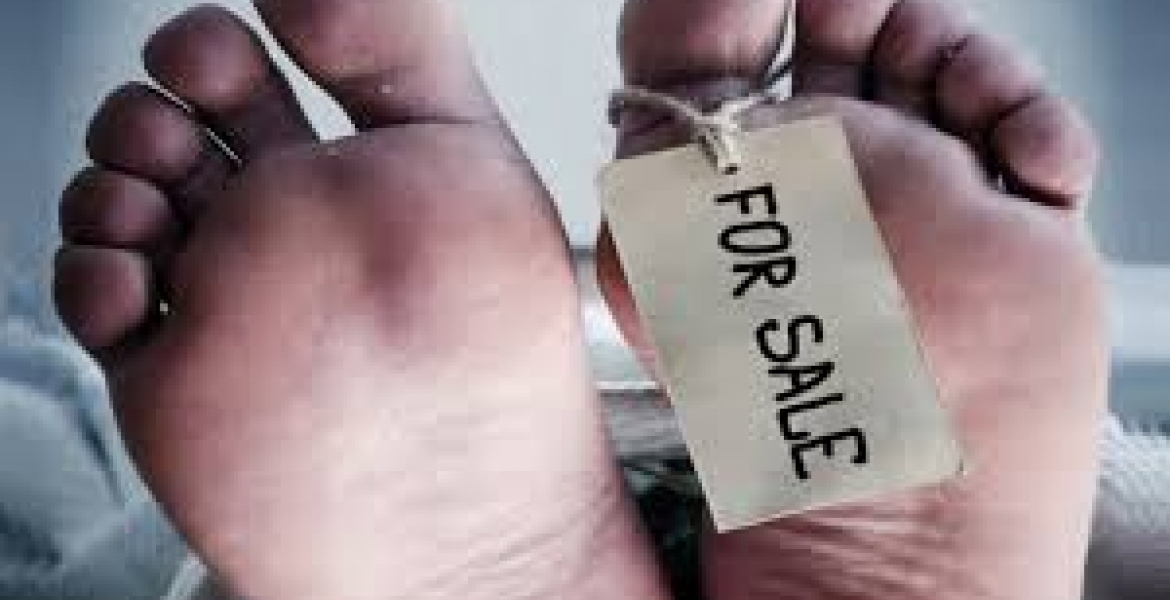These days we debate abortion, assisted suicide, genetic screening, rationed care, and “quality of life” scores. Increasingly, decisions are filtered through insurance codes, government guidelines, and hospital policies. Doctors say, “I’d like to help, but my hands are tied.” Patients are reduced to cases, costs, and compliance charts.

As far as she was concerned, Eichmann wasn’t a monster - he was a bureaucrat. He followed procedures, filed reports, obeyed orders. He stopped asking whether what he was doing was right. For me, I guess I feel differently. He was a monster because of that very reason.
That’s how mass evil hides: not in dramatic acts of cruelty, but in ordinary people just “doing their jobs.”
It is a cop out.
That is the danger of today’s bureaucratised medicine. Not that it will suddenly turn genocidal - but that conscience will be replaced by compliance. That no one will feel personally responsible when life-and-death decisions are reduced to a policy line item. When law substitutes for conscience, when obedience trumps ethical reflection, ordinary people act against their moral instincts.
History doesn’t repeat itself in the same costume. But it sure does follow a pattern. And if we keep surrendering medical ethics to bureaucracy, the slope Germany once slid down may not be as distant as we think.
We see this already. The backlash against COVID-19 vaccine policy has become a broader crisis of credibility for health experts. When bureaucrats and political appointees distort or abandon science, the “experts” find themselves undermined and adrift. Trust evaporates - and the consequences are massive.
I refused the Covid vaccine. It was not an easy decision. I was called selfish, reckless, even dangerous. I watched family members roll up their sleeves, trusting the experts and the slogans: “safe and effective.” So many did it because they needed to keep their jobs. No jab? No job. So much for voluntary.
Now I sit with heartbreak. Friends and relatives gone. Others dying. Yet more unwell. Myocarditis. Turbo cancers. Illnesses that came out of nowhere. They did what they thought was right. They trusted.
That trust has not been honoured. Questions are brushed aside. Concerns dismissed. The same voices that once shouted certainty now whisper, or change the subject.
This is not just about science. It is about authority and accountability. When debate is silenced, when doubt is treated as heresy, and when the consequences are borne by ordinary people - not the ones giving orders - something in society breaks.
I don’t write this to say “I told you so.” I write because the cost is written into the graves and hospital wards of people I love. And I wonder: how do we stop this happening again? How do we make sure the next “crisis” doesn’t mean blind obedience, but open truth? This is not just about science. It is about authority, accountability, and conscience.
When debate is silenced, when doubt is treated as heresy, and when obedience is demanded even at the cost of personal morality, society erodes. Ordinary people are compelled to act against their ethics, and the system rewards compliance over conscience.

BLOG COMMENTS POWERED BY DISQUS



















































